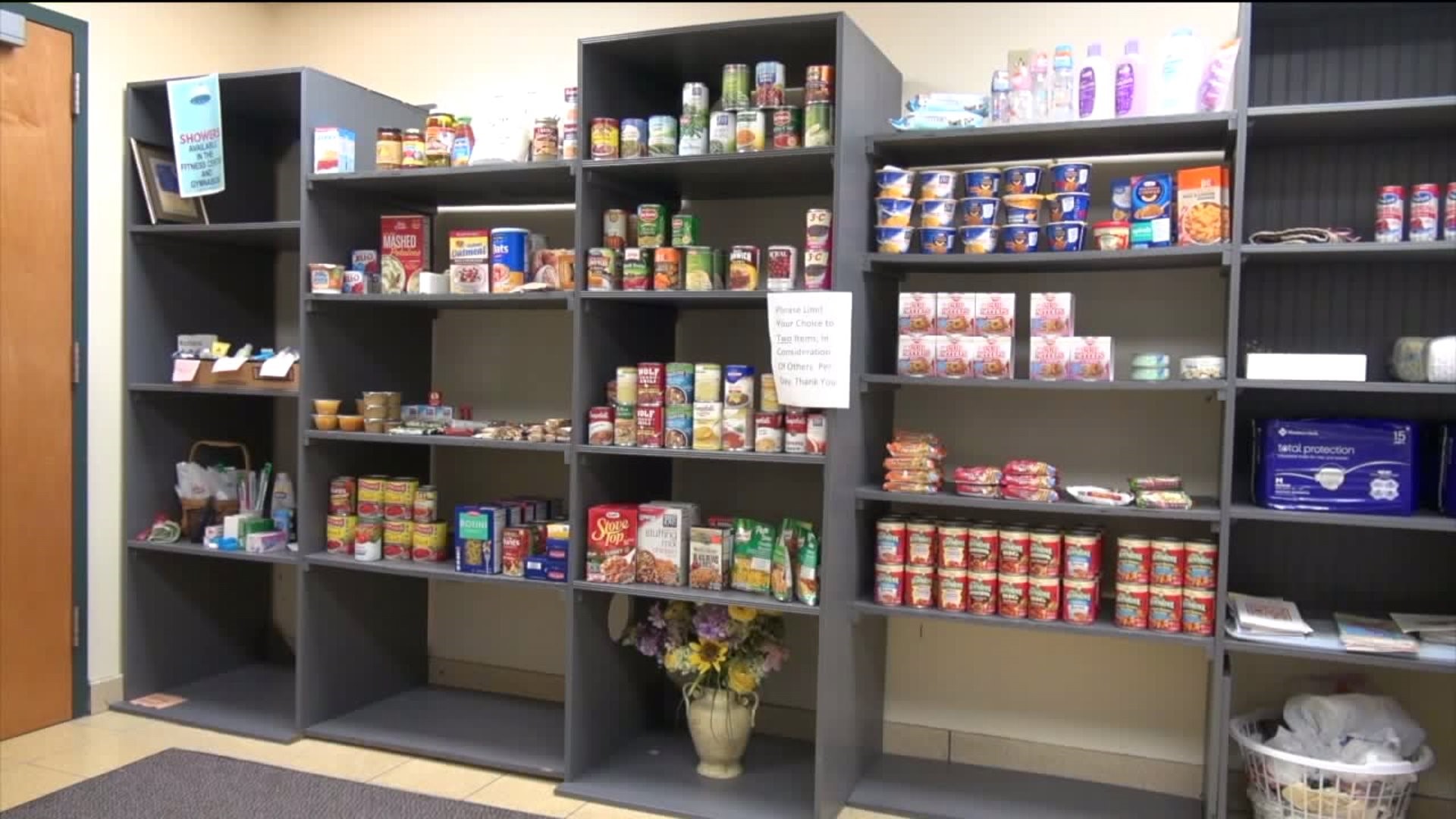NANTICOKE, Pa. -- As the cost of college tuition continues to rise, some students say they're often forced to choose between tuition and food.
The number of students going hungry is even surprising campus officials in our area.
It is a rough lesson so many college and community college students learn after they start school: all the grants and scholarships they put together to afford school is not enough to cover all their expenses, including money for food.
Inside the Estrada house in Wilkes-Barre, 23-year-old Isabel is the first to rise. She's the oldest of five living in cramped quarters with their parents.
Some days Isabel goes without food.
On this morning, she went to pour herself a bowl of cereal and stopped. The cereal box was almost empty.
"That made me realize that I couldn't eat because the kids needed to eat before I did," Isabel Estrada said.
Hungry when heading off to Luzerne County Community College is how Isabel often begins her day. She's studying to be a biomechanical engineer.
On the bus to Nanticoke, she wonders if she can get through this day on an empty stomach.
"I won't be able to concentrate in classes, and I won't be able to perform my best academically," she said.
When she gets to school, she goes right to her part-time job, then to a three-hour biology lab.
"When I was in class, I wasn't focused at all because my mind was, 'I'm hungry, I want food.'"
Isabel is far from being alone. According to a newly released report from the U.S. Government Accountability Office, nearly two million college and junior college students often go hungry.
That's 11 percent of four-year college students and 17 percent of community college students experiencing food insecurity--not getting enough food or no food on any given day.
The president of Luzerne County Community College estimates 20 percent of his school's students go hungry. Thomas Leary believes hunger is a leading cause of LCCC students dropping out.
Many already struggle with bad grades or finding enough tuition money.
"Hunger leads to frustration," said Leary. "If you add hunger to the issue, wow! You are in a situation where you have to wonder, 'Will I ever make it.'"
That's why LCCC became one of the first in the area to open a food pantry.
For students like Dagmar Pijuan, the pantry is a safety net providing for her and her children in tough times.
"Even if you've had something to eat," Pijuan said. "You're emotionally stressed and where's the next meal coming from?"
LCCC officials fear some students are too proud to ask for help with food.
Not Isabel Estrada -- she was able to take a break, to get food from the pantry for a quick meal, and pasta to bring home to her family.
Before she knew of the pantry, she'd often go hungry.
"About half of the month, there will be times when I don't eat food," she said. "Every other day."
Isabel's meal allowed her to focus during an afternoon tutoring session to help her pass a challenging course.
As the oldest child from a struggling home, Isabel feels pressure to succeed, even if she must succeed on an empty stomach.
"If I don't do this, I'm going to let my family down."
That pressure and hunger are not limited to students at two-year and four-year colleges. The most recent school food pantry opened at the Geisinger Commonwealth School of Medicine. Even future doctors sometimes have to make a choice between books, tuition, and food.

